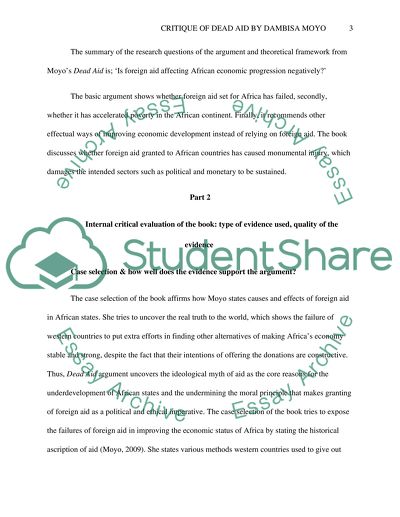Cite this document
(“Critique on Dead Aid by Dambisa Moyo Essay Example | Topics and Well Written Essays - 2000 words”, n.d.)
Critique on Dead Aid by Dambisa Moyo Essay Example | Topics and Well Written Essays - 2000 words. Retrieved from https://studentshare.org/macro-microeconomics/1447328-critical-review-paper-on-dambisa-moyo-s-book-dead
Critique on Dead Aid by Dambisa Moyo Essay Example | Topics and Well Written Essays - 2000 words. Retrieved from https://studentshare.org/macro-microeconomics/1447328-critical-review-paper-on-dambisa-moyo-s-book-dead
(Critique on Dead Aid by Dambisa Moyo Essay Example | Topics and Well Written Essays - 2000 Words)
Critique on Dead Aid by Dambisa Moyo Essay Example | Topics and Well Written Essays - 2000 Words. https://studentshare.org/macro-microeconomics/1447328-critical-review-paper-on-dambisa-moyo-s-book-dead.
Critique on Dead Aid by Dambisa Moyo Essay Example | Topics and Well Written Essays - 2000 Words. https://studentshare.org/macro-microeconomics/1447328-critical-review-paper-on-dambisa-moyo-s-book-dead.
“Critique on Dead Aid by Dambisa Moyo Essay Example | Topics and Well Written Essays - 2000 Words”, n.d. https://studentshare.org/macro-microeconomics/1447328-critical-review-paper-on-dambisa-moyo-s-book-dead.


